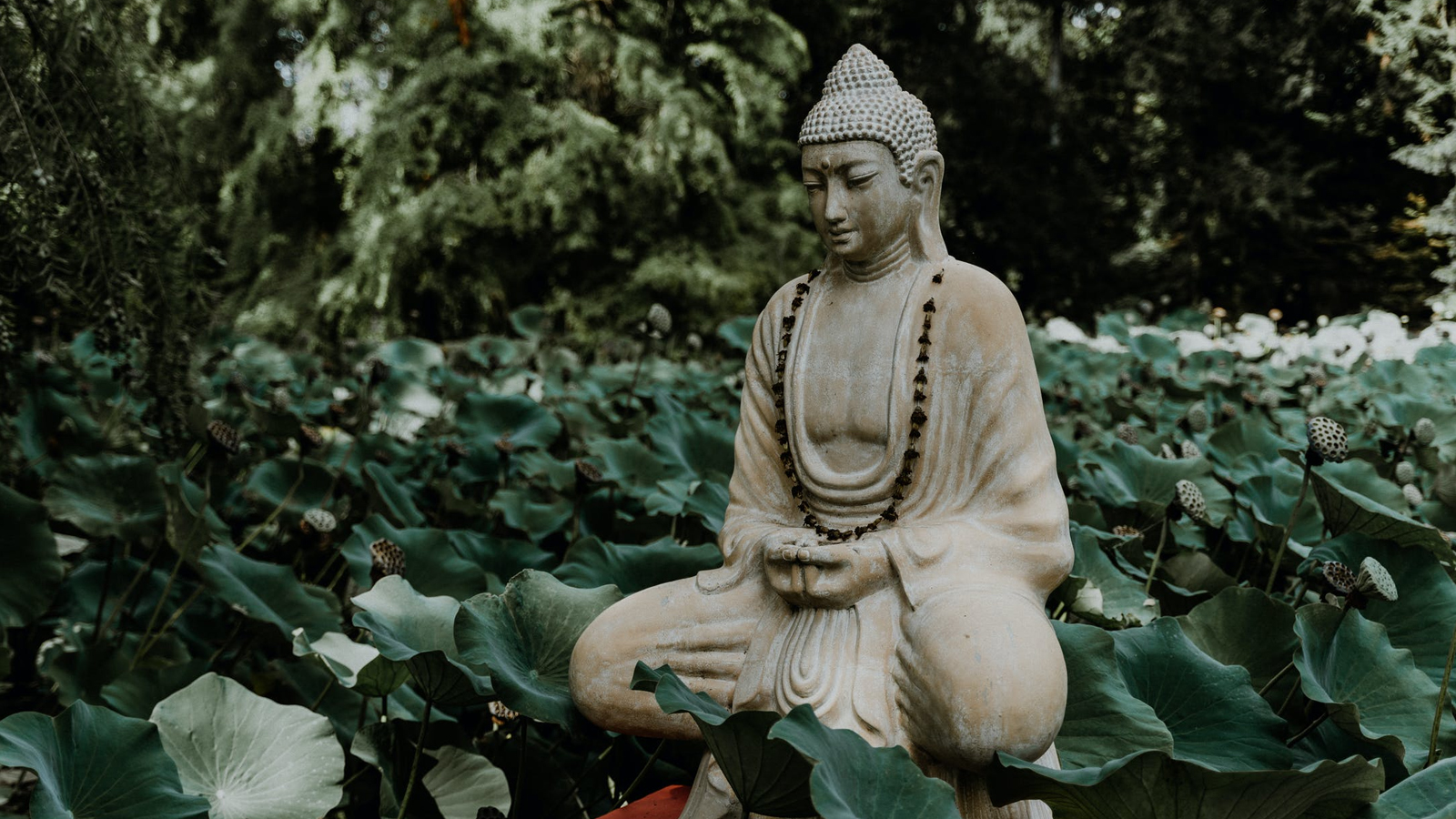The four sights experienced by Guatama Siddhartha underlie all Buddhist teachings. As the story goes, Siddhartha (or as he would come to be known, Buddha) lived a luxurious existence until one day when he left his palace and “in quick succession, met a young child full of energy and joy, followed by an old and decrepit man in great pain… a younger man who was very sick and clearly approaching the point of death… [and] a funeral procession carrying a decaying corpse.”[1] As a result of his experiences, Siddhartha went on a spiritual quest, ultimately arriving at the conclusion that the principle problem is human want.[2] The ultimate goal in Buddhism is nirvana, “to eliminate all desires or cravings, and in this way to escape suffering.”[3] Christianity and Buddhism offer vastly different perspectives on the nature of reality, what is wrong, and what steps one should take in response. Share on X
Jesus, during his ministry, touched on the same topics of aging, disease, death, and want identified by Buddhism, yet had a much different response. First, Jesus acknowledged the needs of people and miraculously healed people of their earthly afflictions, even raising the dead.[4] When Buddha was in a similar position, he did not heal the afflicted but rather taught they should accept suffering as a reality and attempt to reach nirvana.[5] Even when Jesus did not seek to solve every problem, he taught that comfort could be found not in denying want, but in relying on God’s goodness and trusting that God will take care of His people. Jesus said:
“If God so clothes the grass of the field, which is alive today and tomorrow is thrown into the furnace, will He not much more clothe you? You of little faith!” (Matthew 6:30)
In fact, it is the reliance on God which sets Christianity apart from Buddhism. Whereas Buddha taught it was each individual’s responsibility to reach nirvana, Jesus taught that Christians can rely on God’s mercy to overcome their worldly obstacles. Not only that, but Jesus spoke to a greater concern than temporal matters like aging or death: one’s relationship with their Creator. For Christians, want is not the main problem with life, but rather the sins which separate man from God. Luckily, Jesus taught that through Him one could be reunited with their Creator and in the process render many earthly concerns moot:
“I am the resurrection and the life; the one who believes in Me will live, even if he dies, and everyone who lives and believes in Me will never die.” (John 11:25-26)
Whereas Siddhartha spent a long journey seeking the truth, Jesus claimed:
“I am the way, the truth, and the life.” (John 14:6)
It was by Jesus own authority that He claimed to perform miracles and forgive sin, and by Jesus’ authority that His disciples performed miracles,[6] just one of many examples wherein Jesus demonstrated divine status. Siddhartha claimed to have found wisdom through human reason alone, whereas Jesus claimed He was the source of special revelation from God (Himself).
These two world religions offer vastly different perspectives on the nature of reality, what is wrong, and what steps one should take in response.
[1] Irving Hexam, Encountering World Religions (Grand Rapids: Zondervan, 2019), 73.
[2] Douglas Groothuis, “Jesus and Buddha: Similarities and Differences,” February 3, 2014, YouTube video, 1:30:16, https://youtu.be/0lUB4P8XbqE.[3] Paul Carden, Christianity, Cults & Religions: A Side By Side Comparison Chart of 20 Cults, Religions, and World Views (Peabody: Rose Publishing, 2013), 13.
[4] See Matthew 4:23-24 and John 11.
[5] Douglas Groothuis, “Jesus and Buddha: Similarities and Differences.”
[6] Matthew 10:1.
Jimmy Wallace is a detective who holds a BA in Psychology (from UCLA) and an MA in Theology - Applied Apologetics (from Colorado Christian University).









































Florin
April 8, 2022 at 1:36 pm
The nice thing is that Buddhists are truth seekers.
The sorry thing is that they can’t find it on their own.
Aren’t Sicks a step closer? They worship a God that they don’t know, but believe in Him?
Daniel Holmes
April 14, 2022 at 12:19 am
Buddhists do not worship Buddha as a god. In fact not all Buddhists believe in a god at all and the ones that do typically believe the Hindu gods pantheon of which Buddha is not one. The Buddha was just a man who achieved an insight into the human mind that changed how he saw reality which he said was beneficial to our experience of reality. Also the Hindu view gods is not entirely analogous with how Abrahamic religions view god.
Rob
April 27, 2022 at 2:12 pm
Great to see Jimmy studying theology.